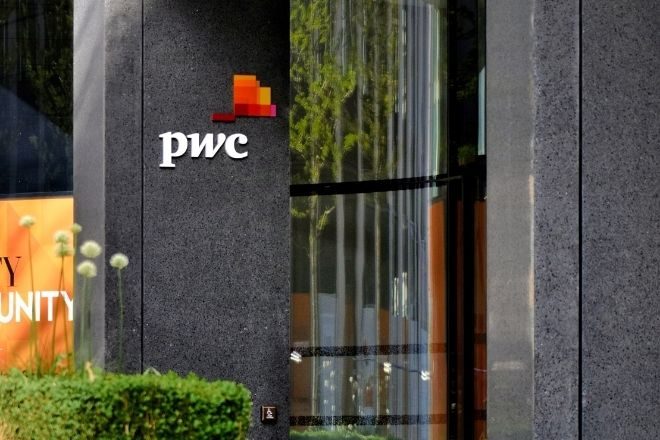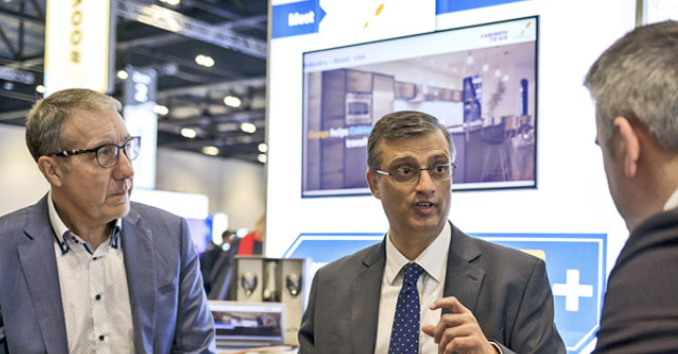When Dr Clare Wenham from the London School of Economics was interviewed by the BBC last year about her views on local lockdowns, it was the presence of her young daughter that stole the show. It was a real moment that reflected both the joys and complications of working from home and one that most working parents would have recognised. The challenge of remote communication was laid bare but also the potential. Distance had been conquered, at least technically, but what about emotionally?
For anyone starting a new job during the pandemic or trying to establish new relationships with suppliers and partners, remote contact has been the default. Has it worked? Almost certainly, to some extent, because it has had to work. But what does that really mean? Have those Zoom or Teams calls managed to establish strong bonds or are we kidding ourselves? Conducting one-off interviews is one thing but maintaining long distance relationships is quite a different challenge altogether.
The book Love in the Time of Cholera by Gabriel García Márquez poignantly depicts the tensions between love and distance during times of a cholera outbreak and economic crisis in early 20thcentury Colombia. The relationship between Florentino and Fermina is seemingly real but the distance gives them a false connection. In reality they have drifted apart, which in many respects echoes the problems that we all potentially face when trying to manage long distance relationships with our colleagues, customers and partners.
Having been appointed from my previous role within PwC to CTO and head of tech consulting during the pandemic, I know only too well how strange it is to only meet your new colleagues online. Coupled with long periods of isolation and the increasingly sedentary, bleary-eyed symptoms of virtual working, it is understandable how these could be the perfect conditions for relationships to die, or not even start at all. So how are we expected to ensure relationships with colleagues, clients and vendors are preserved let alone thrive during this time of continued remote working?
A big part of my role is managing our strategic alliance relationships. In my international career of 20-plus years, I have worked on a number of projects with vendors where we came together to design and deliver the best possible transformational outcomes for our clients, while building trusting, long-lasting relationships along the way. How do we do this working remotely? How can we navigate the complexities of these relationships when the world has just become more complex?
Here is what I’ve learned
Be a people person. Focus on what’s in front of you.
It may sound a little obvious but focussing on internal relationships makes a lot of sense. Given the complexities of work and the huge potential for distraction, ensuring you have nurtured strong relationships with colleagues should stand you in good stead. These are the people you need to rely on for support, for ideas, innovation and action. There needs to be mutual trust but that has to be earned.
It’s important to establish open lines of communication, a clear definition of roles and set boundaries and expectations. This should go both ways. It’s about establishing a team ethic, not a hierarchy. How people want to work together will of course vary but this is about finding common ground and enabling people. While we don’t always get it right, it doesn’t mean you shouldn’t try, continually self-evaluate and look to improve.
An important part of this process is diversity. We have to draw on a breadth of knowledge and experiences, across all social and ethnic groups, to deliver a truly dynamic, modern-thinking and engaging team of problem-solving people. As our own research has revealed, diverse businesses create better outcomes for customers and better business returns, through improved innovation and relevance.
So, take some time to get to know your colleagues and, if you are not already, actively push policies that deliver on diversity, to build a team of people who are proud of the organisation they work for and share your vision. At PwC we have strategists, change managers, innovation thinkers, cyber and risk experts. They are all part of a strong team that empowers us to build external relationships with our vendors. We encourage our teams to bring a fresh and challenging perspective to every engagement, to become independent advocates and partners to our clients.
As I have already suggested, relationships over distance can be difficult. They need time and attention. They need to be nurtured. This doesn’t mean you have to set up weekly team games (remote quizzes are not for everyone) but it’s important to respect roles and colleagues’ professional and personal challenges as we emerge from lockdowns, opportunities to meet up and cement relationships are opening up. It’s important to remember that old wise, if not a little cheesy, saying, ‘you are only as good as the people around you’.
Join the club and get personal
Before the pandemic, video calls tended to be rare and a mixed bag, with many attendees not turning their cameras on so they couldn’t be seen. It’s now pretty much standard and expected. Maintaining face-to-face contact with colleagues is really important to develop relationships, especially while working remotely.
Regular video calls certainly help and are necessary for all those long working sessions when scoping and delivering projects. Whenever the rules permitted, I tried establishing some sort of in-person contact with my key vendor relationships – be it an occasional walk or early morning run – and it certainly worked on so many levels. I’d even go as far as saying some conversations were deeper than your usual informal chats after work. We didn’t have nearly as many distractions and conversations were often both personal and business-oriented. It becomes quite simple – we are social animals. We need each other and are stronger together.
Take some time to get to know your colleagues and, if you are not already, actively push policies that deliver on diversity”
With regards to client relationships, it helped that PwC already had experience of working remotely. Not everyone was new to the concept of video calling and remote collaboration. This of course, stood us in good stead when the lockdown came. We already had the infrastructure, technology and training in place so our staff could be agile and adapt. As an example, we were working on a cloud transformation with Direct Line Group and at a critical point in the project the world went into lockdown. Despite all the potential for interruption, it was remarkable how little momentum on the project was lost and we were able to successfully transform their finance capability, all enabled by Oracle Cloud.
Be loyal but open to changing needs
Technology can be a complex and unforgiving landscape. For one, it never stands still and will leave behind those that don’t look ahead or look to embrace change. Our vendor relationships by definition become ‘polygamous’. Both parties understand that’s the nature of the business landscape, so if we are all to continue to move forward and collaborate, we all need to ensure we understand the evolving role of technology and what we can bring to the party for our clients.
Maintaining ongoing relationships with vendors is essential, but it is also important to be constantly on the lookout for new relationships. As the pandemic revealed, there is a thin line between making it or breaking it for both new and established relationships. It all comes down to trust, transparency and communication but that doesn’t just happen. It needs constant attention, development and re-evaluation.
I vividly remember the last in-person event we hosted with over 400 clients and partners aboard the Sunborn Yacht during Oracle Openworld 2020. This year, as I sat in front of my laptop, with my VR headset on attending our virtual event, understandably thoughts centred on the value of human interaction and the role this plays in client engagement. The subtleties of speech, the nuances, the asides.
Technology will have to increasingly enable smooth online communication but culturally we also have to adapt to accept remote relationships as part of the mix. For many that may mean investing more in home-enabling the workforce, ensuring the best possible internet speeds and secure connections. It will also demand discipline.
Above all we have to find sustainable paths of engagement with clients and vendors. There will be no one-method-works-for-all approach, so we will have to be agile in our work and how we communicate and collaborate. Using a mix of virtual and in-person approaches, we can hopefully stave off the fear and anxiety of separation.
As we emerge from lockdowns into increasingly hybrid working worlds, this will become apparent. Perceptions of loss of control may force some to return to old habits using new tools. But times have changed. We have to adapt, look after our colleagues and partners and move forward together in order to collaborate and deliver customer satisfaction. As Márquez once wrote, “no medicine cures what happiness cannot.”
Mark Moffat is CTO and head of tech consulting at PwC UK & EMEA





